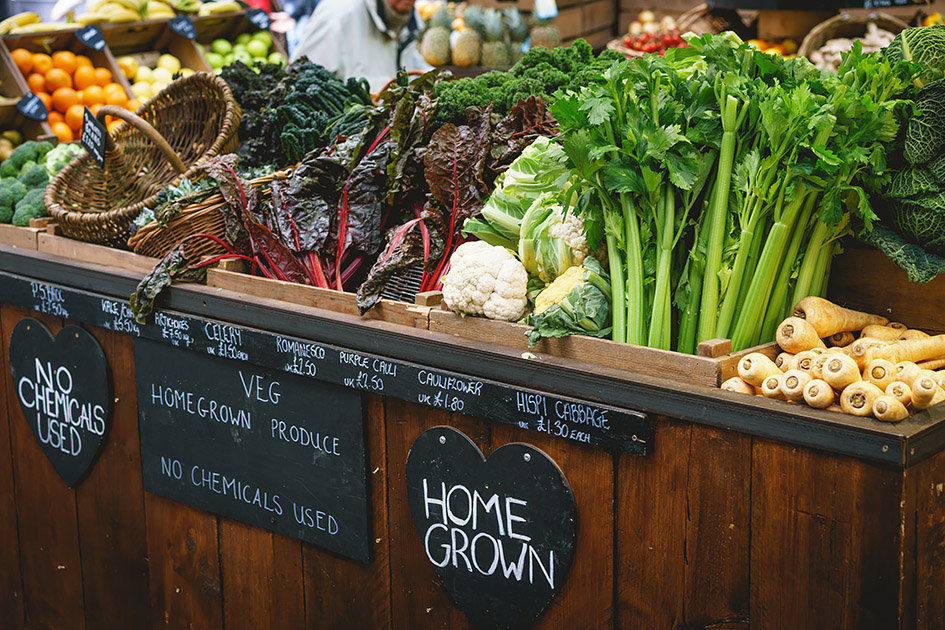Economy
Transitions in theFood Industry
The production, processing, and consumption of food plays a significant role in human use of resources. For example, the European food industry accounts for 28 per cent of global resource consumption and 17 per cent of greenhouse gas emissions.
The European food industry thus plays a part in contributing to climate change, loss of biodiversity, and soil quality as well as scarcity of water. Nutrition thus represents an important field of action through which sustainable development can be implemented.

Our daily food intake is also an important field of action. "You are what you eat" – when it comes to our daily diet, it is also about maintaining the health and well-being of each individual. More than any other field of action, this is where the personal, individual level meets the major overarching challenge of environmental pollution and resource consumption.
Therefore, the food system is a very complex product-service system in a changing society. In addition to traditional producers and the structures of the retail trade, the out-of-home catering (i.e. system catering, schools, company catering and even restaurants) is becoming increasingly the focus of research. In the context of sustainable development, this offers an important regulation element. Almost every German household dines out, instead of eating at home for every third to fourth meal (with a tendency to even more frequently). Strategies for a sustainable transition in the food industry require comprehensive analyses.
On the one hand, the production and manufacturing processes of individual links in the value chains must be examined, for example by calculating the material flows using the "Corporate Material Footprint" method within the "Sustainable McDonald's Deutschland" project. Or central ecological and social challenges must be identified using the hot-spot analysis method, as applied in the "REWE-Navi"project. On the other hand, individual consumption patterns are very crucial. For instance, the consumption of meat and meat products, as well as milk and dairy products – i.e. highly processed animal proteins – is and will remain a problem. But vegetarian or vegan diets can also pose environmental and health challenges.
The Wuppertal Institute sees itself as a driving force when it comes to defining target values for sustainable diets, which, in contrast to the health aspect, do not exist in a binding form for the environmental impact of a daily diet, yet.
Against the background of this discussion, the Nutritional Footprint was developed as an instrument to assess individual meals. It makes it possible to identify health and environmental impacts simultaneously. The method is constantly being further developed.
Publi-cations
You find all scientific publications on our publication server:
Projects
Here you find research activities in the field of transitions in the food industry.
